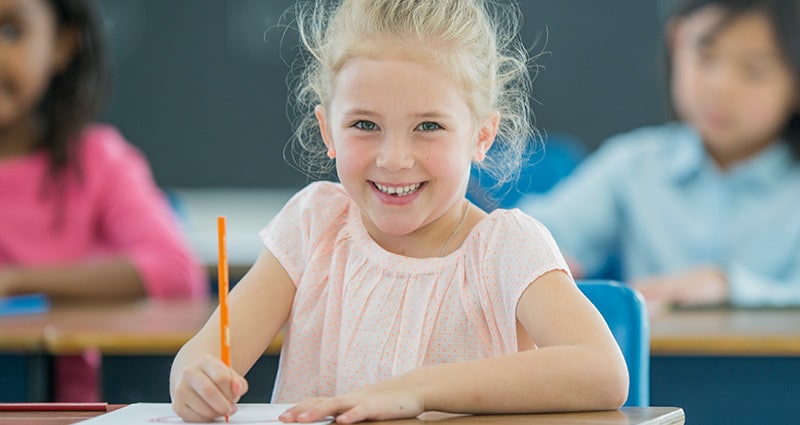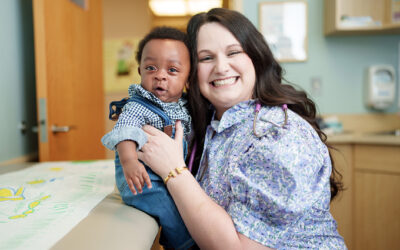Transitions can be hard, and children may experience anxiety when heading back to school after summer vacation.
Anxiety is a part of being human. Managing and reducing that anxiety—and your own—in the face of the transition back to school is doable. We’ve gathered some ideas to help.
Keep it Positive
Kids learn more from how we act as parents than the things we say, which is why it’s important to stay positive as the first day of school approaches.
Validate children’s worries but show enthusiasm about school with them. Have fun while you’re shopping for needed supplies. Your kids will feed off your good attitude.
Playdates with school friends can make a big difference if you can make them happen. Seeing a friendly face makes a new classroom or new school much less scary.
Be as present and available as your schedule allows during the transition back into school. More attention can help kids feel better. An encouraging note slipped into a backpack can help kids feel more secure and remind them of your connection and love when you are separated.
Role Play
When kids are anxious about the approach of school or other stress-inducing occasions, knowing what to expect and practicing can go a long way to easing any fears.
One way to help kids feel a better sense of control and less stress is to role play. This simply means acting out a few scenarios they may be anxious about encountering.
By remaining calm and showing them how to respond in courteous, constructive ways, you’re modeling healthy behaviors they’re much more likely to pick up than if you simply tell them how to respond.
Take Care of Yourself
With so much in the world to be anxious about, parents often carry the weight of those worries. Little ones can feed off their parents’ anxiety regardless of the season. Make sure your family is getting enough rest, eating nutritious foods, and having fun together.
When to Seek More Help
You know your child best, but it’s helpful to know the signs of anxiety as they may not know how to put their feelings into words.
Kids who are experiencing anxiety may be clingier than usual, restless and fidgety, complain of stomachaches, have changes in eating and sleeping habits, express negative thoughts and worries, get upset or angry more quickly, struggle to concentrate, or cry without explanation.
Significant, untreated anxiety can have detrimental effects on our children’s bodies and their emotional health. If these types of symptoms last longer than two weeks and interfere with their daily life, it’s important to talk to your child’s primary care provider, who can help connect you to expert care.




